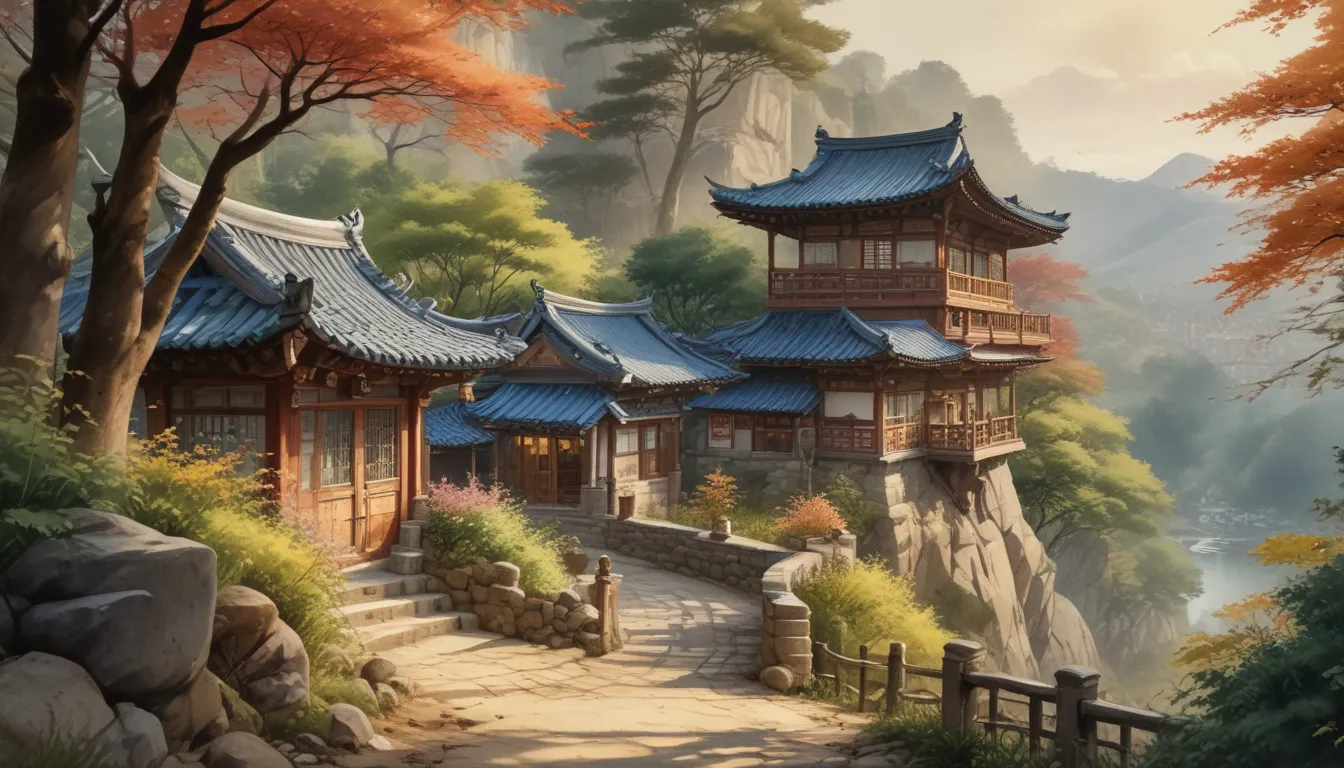The images in our articles are for illustrative purposes only and may not exactly match the content. They are intended to capture your interest and complement the text, not to replace it.
South Korea, the land of high mountains and sparkling streams, has captivated the world with its unique culture and traditions. From its bustling metropolis of Seoul to its serene countryside, South Korea offers a diverse and vibrant experience for visitors. Whether you’re a fan of K-pop, Korean cuisine, or traditional customs, there’s something for everyone in this remarkable country. Join us on a journey to uncover the intriguing South Korea facts that make this country truly special.
Delving into South Korea’s Rich Culture
The Origin of the Name ‘Korea’
Did you know that the name ‘Korea’ originated from ‘Goryeo,’ meaning ‘high and clear’? This historical reference reflects the country’s majestic landscapes and rich cultural heritage. South Korea, occupying 45% of the southern region of the Korean peninsula, is known for its diverse terrain, from towering mountains to picturesque coastlines. With a land area of 100,210 sq km, South Korea is almost the size of Indiana state, hosting a population of over 51 million people. It’s truly a land of captivating contrasts and remarkable beauty.
Seoul: The Heart of South Korea
Seoul, the capital of South Korea, serves as the cultural, economic, and political center of the country. This bustling metropolis is a vibrant blend of traditional architecture and modern skyscrapers, offering a glimpse into South Korea’s dynamic energy. Sejong City, the administrative capital, adds to the country’s allure with its rich history and cultural significance. South Korea, with no national religion, guarantees freedom of religion as a constitutional right, allowing for a diverse range of beliefs to coexist harmoniously.
Exploring South Korea’s Unique Traditions
The Significance of Rice in South Korean Culture
Rice, the most important crop in South Korea, holds a special place in the country’s culinary traditions. From traditional rice dishes to symbolic rituals, rice plays a crucial role in South Korean cuisine and culture. Additionally, South Korea is renowned for its export of superior-quality ginseng, known for its medicinal properties and health benefits. The cultural significance of rice and ginseng reflects the deep-rooted traditions and values of the South Korean people.
Unique Customs and Beliefs
In South Korea, customs and beliefs often carry symbolic meanings and superstitions. For example, writing a name in red ink traditionally signifies death or ill-fortune, highlighting the importance of cultural symbols and practices in everyday life. Moreover, traditional practices like the ‘hwangap,’ a lavish celebration for individuals turning 60, showcase the value of family and community in South Korean society. These customs provide insight into the rich tapestry of traditions that shape South Korea’s cultural identity.
Uncovering South Korea’s Remarkable Achievements
Technological Innovations and Achievements
Did you know that South Korea has the fastest wireless speed in the world, with an average download speed of 33.5 Mbps? This technological prowess is evident in the country’s advancements in telecommunications and digital infrastructure. Additionally, South Korean company Samsung produces the microchips used in Apple iPhones, highlighting the country’s influence in the global tech industry. With a strong focus on innovation and entrepreneurship, South Korea continues to lead the way in technology and digital transformation.
Cultural Impact on the Global Stage
South Korea’s cultural influence, known as ‘Hallyu’ or the Korean wave, has captured the hearts of audiences worldwide. From K-pop music to Korean cinema, South Korean entertainment has gained international recognition and acclaim. The success of films like Parasite, the first South Korean film to win multiple Oscars, has propelled South Korean cinema to new heights. This cultural phenomenon has not only brought South Korean personalities into the international limelight but also enriched global cultural exchange and understanding.
Embracing South Korea’s Natural Beauty
The Beauty of South Korea’s Landscapes
South Korea’s diverse landscapes, from lush mountains to scenic coastlines, offer a visual feast for nature lovers. The T’aebaek Mountains, running along the eastern coastline, showcase the country’s natural beauty and ecological diversity. With three main rivers – the Han River, Kŭm River, and Naktong River – providing essential water sources, South Korea’s landscapes are teeming with life and natural wonders. The country’s commitment to environmental conservation is evident in its efforts to protect endangered animal and plant species in the Demilitarized Zone (DMZ) that separates North and South Korea.
The Cultural Significance of Nature
In South Korea, nature plays a significant role in traditional customs and beliefs. From the cultivation of rice to the practice of kimjang, the preparation of winter kimchi, nature is intertwined with everyday life and seasonal rituals. South Koreans’ reverence for the natural world is reflected in their cultural practices, such as the celebration of the Harvest Moon Festival and the symbolic meanings of the national flower, Mugunghwa. By embracing the beauty of nature, South Koreans honor their heritage and the interconnectedness of all living beings.
Conclusion: The Enduring Charms of South Korea
As we conclude our exploration of South Korea’s fascinating facts and cultural heritage, we are reminded of the country’s enduring charms and vibrant spirit. From its bustling cities to serene countryside, South Korea offers a wealth of experiences for visitors and locals alike. By delving into the country’s rich traditions, technological achievements, and natural beauty, we gain a deeper appreciation for the tapestry of cultures that make South Korea truly unique. Whether you’re savoring a bowl of kimchi or exploring the historic sites of Seoul, South Korea invites you to immerse yourself in its captivating world of beauty and wonder. Come, discover the magic of South Korea and experience the warmth and hospitality of its people.






